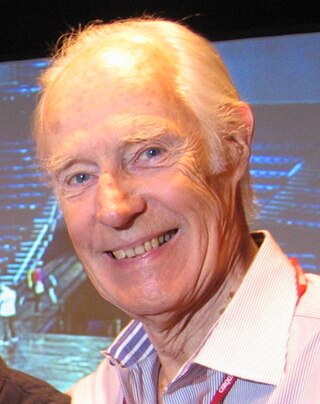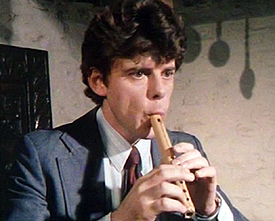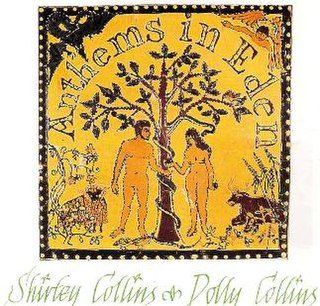
Sir George Henry Martin was an English record producer, arranger, composer, conductor, and musician. He was commonly referred to as the "Fifth Beatle" because of his extensive involvement in each of the Beatles' original albums. AllMusic has described him as the "world's most famous record producer". Martin's formal musical expertise and interest in novel recording practices complemented the Beatles' rudimentary musical education and relentless quest for new musical sounds to record. Most of the Beatles' orchestral arrangements and instrumentation were written or performed by Martin, and he played piano or keyboards on a number of their records. Martin's collaboration with the Beatles resulted in popular, highly acclaimed records with innovative sounds, such as the 1967 album Sgt. Pepper's Lonely Hearts Club Band—the first rock album to win a Grammy Award for Album of the Year.
The 19th Annual Grammy Awards were held on February 19, 1977, and were broadcast live on American television (CBS). It was the seventh and final year Andy Williams hosted the telecast. The ceremony recognized accomplishments by musicians from the year 1976.
Shirley Elizabeth Collins MBE is an English folk singer who was a significant contributor to the English Folk Revival of the 1960s and 1970s. She often performed and recorded with her sister Dolly, whose accompaniment on piano and portative organ created unique settings for Shirley's plain, austere singing style.

David John Munrow was a British musician and early music historian.

Eumir Deodato de Almeida is a Brazilian pianist, composer, arranger and record producer, primarily in jazz but who has been known for his eclectic melding of genres, such as pop, rock, disco, rhythm and blues, classical, Latin and bossa nova.

Edwin H. Kramer is a British recording producer and engineer. He has collaborated with several artists now in the Rock and Roll Hall of Fame, including Jimi Hendrix, the Beatles, David Bowie, the Rolling Stones, Led Zeppelin, Eric Clapton, the Kinks, Kiss, John Mellencamp, and Carlos Santana, as well as records for other well-known artists in various genres, including Anthrax, Joe Cocker, Loudness, Peter Frampton, John Mayall, Ten Years After, Mott the Hoople, John Sebastian, Carly Simon, Dionne Warwick, Small Faces, Sir Lord Baltimore and Whitesnake.
Philip Pickett is an English musician. Pickett was director of early music ensembles including the New London Consort, and taught at the Guildhall School of Music and Drama. He played recorders, shawms and similar instruments. In February 2015, Pickett received an 11-year prison sentence for the rape and sexual assault of pupils at the school.
Solage, possibly Jean So(u)lage, was a French composer, and probably also a poet. He composed the most pieces in the Chantilly Codex, the principal source of music of the ars subtilior, the manneristic compositional school centered on Avignon at the end of the century.

Anthems in Eden is a 1969 album by Shirley and Dolly Collins, with the Early Music Consort of London, directed by David Munrow. The album originally consisted of a 28-minute set of folk songs plus seven other individual pieces performed by the same group. The musical arrangements for these eight pieces included early music instruments, such as viols, recorders, sackbuts and crumhorns. In 1976, six new songs were recorded with a different assortment of accompanists, to replace the original seven individual songs. This 1976 album consisting of the 28-minute set plus the six new songs was released by Harvest Records under the title Amaranth. Subsequent releases have combined all fourteen pieces under the original title, Anthems in Eden.
James Thomas Bowman CBE is an English countertenor. His career spans opera, oratorio, contemporary music and solo recitals. In 2010 it was announced that he would give his last London concert in 2011 at the Wigmore Hall, although he would continue to give recitals outside the capital. A few years previously he retired from the Chapel Royal, St. James's Palace in London, after a decade of service.
An early music revival is a renewed interest in music from ancient history or prehistory. The general discussion of how to perform music from ancient or earlier times did not become an important subject of interest until the 19th century, when Europeans began looking to ancient culture generally, and musicians began to discover the musical riches from earlier centuries. The idea of performing early music more "authentically", with a sense of incorporating historically accurate performance practice, was more completely established in the 20th century, creating a modern early music revival that continues today.
"Around and Around" is a 1958 rock song written and first recorded by Chuck Berry. It originally appeared under the name "Around & Around" as the B-side to the single "Johnny B. Goode".

The Early Music Consort of London was a British music ensemble in the late 1960s and 1970s which specialised in historically informed performance of Medieval and Renaissance music. It was founded in 1967 by music academics Christopher Hogwood and David Munrow and produced many highly influential recordings. The group disbanded in 1976 following Munrow's suicide.

The Art of the Netherlands was an influential collection of recordings made by the Early Music Consort of London under the direction of David Munrow and issued in 1976 as a three-disk set.
Medieval folk rock, medieval rock or medieval folk is a musical subgenre that emerged in the early 1970s in England and Germany which combined elements of early music with rock music. It grew out of the British folk rock and progressive folk movements of the late 1960s. Despite the name, the term was used indiscriminately to categorise performers who incorporated elements of medieval, renaissance and baroque music into their work and sometimes to describe groups who used few, or no, electric instruments. This subgenre reached its height towards the middle of the 1970s when it achieved some mainstream success in Britain, but within a few years most groups had either disbanded, or were absorbed into the wider movements of progressive folk and progressive rock. Nevertheless, the genre had a considerable impact within progressive rock where early music, and medievalism in general, was a major influence and through that in the development of heavy metal. More recently medieval folk rock has revived in popularity along with other forms of medieval inspired music such as Dark Wave orientated neo-Medieval music and medieval metal.
Rogers Henry Lewis Covey-Crump is an English tenor noted for his performances in both early music and contemporary classical music. He has sometimes been identified as an haute-contre tenor. He has performed for over 50 years in choirs and ensembles such as the Hilliard Ensemble, and as a soloist. He has been especially in demand for the part of the Evangelist in Bach's St Matthew Passion and St John Passion. He also specialises in vocal tuning, and has written articles on the subject.

Add MS 29987 is a mediaeval Tuscan musical manuscript dating from the late fourteenth or early fifteenth century, held in the British Library in London. It contains a number of polyphonic Italian Trecento madrigals, ballate, sacred mass movements, and motets, and 15 untexted monophonic instrumental dances, which are among the earliest purely instrumental pieces in the Western musical tradition. The manuscript apparently belonged to the de' Medici family in the fifteenth century, and by 1670 was in the possession of Carlo di Tommaso Strozzi; it was in the British Museum from 1876, where it was catalogued as item 29987 of the Additional manuscripts series. It is now in the British Library.
St. George's Canzona is a British musical ensemble.
Musica Reservata was an early music group founded in London in the late 1950s by Irishman Michael Morrow and the musician, conductor and composer John Beckett.








